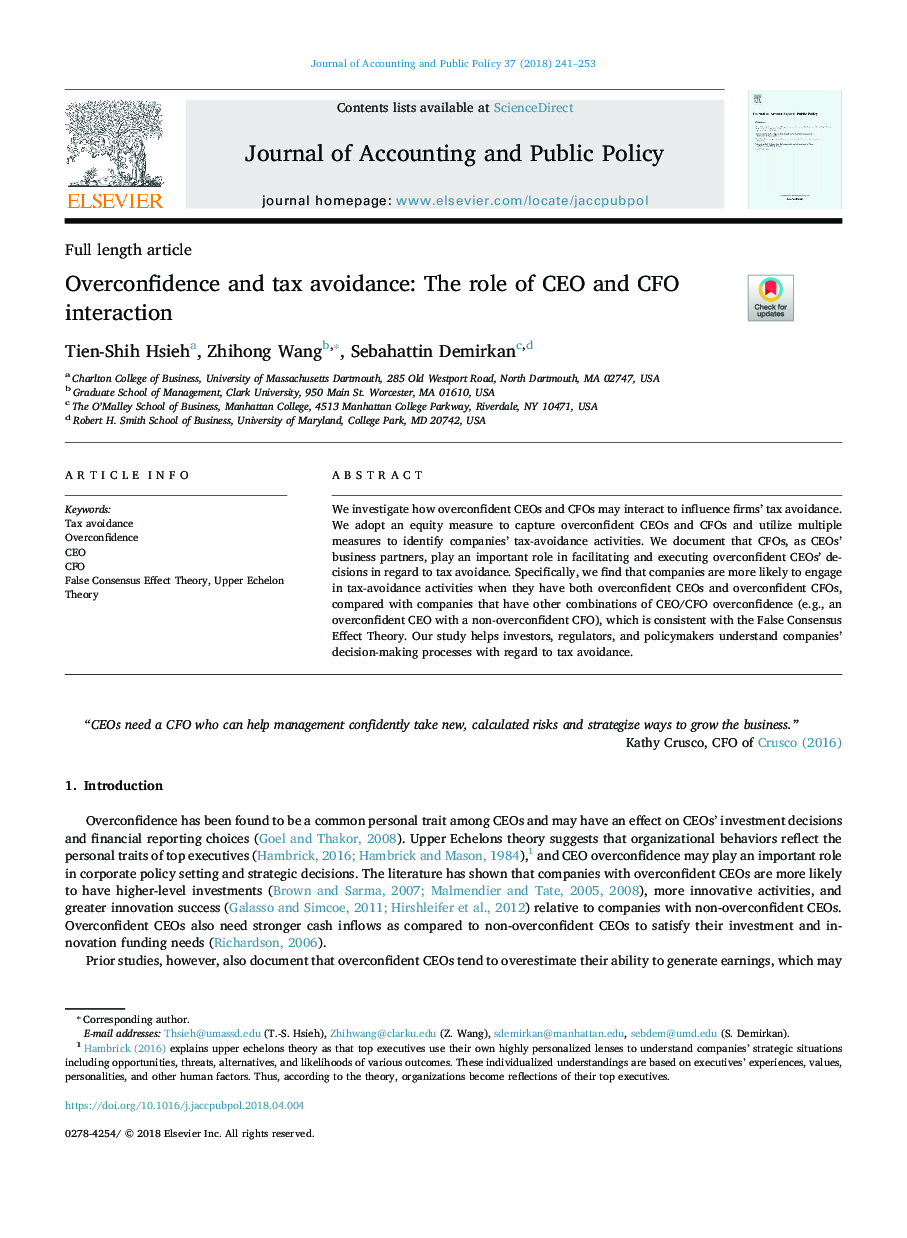| Article ID | Journal | Published Year | Pages | File Type |
|---|---|---|---|---|
| 7415783 | Journal of Accounting and Public Policy | 2018 | 13 Pages |
Abstract
We investigate how overconfident CEOs and CFOs may interact to influence firms' tax avoidance. We adopt an equity measure to capture overconfident CEOs and CFOs and utilize multiple measures to identify companies' tax-avoidance activities. We document that CFOs, as CEOs' business partners, play an important role in facilitating and executing overconfident CEOs' decisions in regard to tax avoidance. Specifically, we find that companies are more likely to engage in tax-avoidance activities when they have both overconfident CEOs and overconfident CFOs, compared with companies that have other combinations of CEO/CFO overconfidence (e.g., an overconfident CEO with a non-overconfident CFO), which is consistent with the False Consensus Effect Theory. Our study helps investors, regulators, and policymakers understand companies' decision-making processes with regard to tax avoidance.
Keywords
Related Topics
Social Sciences and Humanities
Business, Management and Accounting
Accounting
Authors
Tien-Shih Hsieh, Zhihong Wang, Sebahattin Demirkan,
